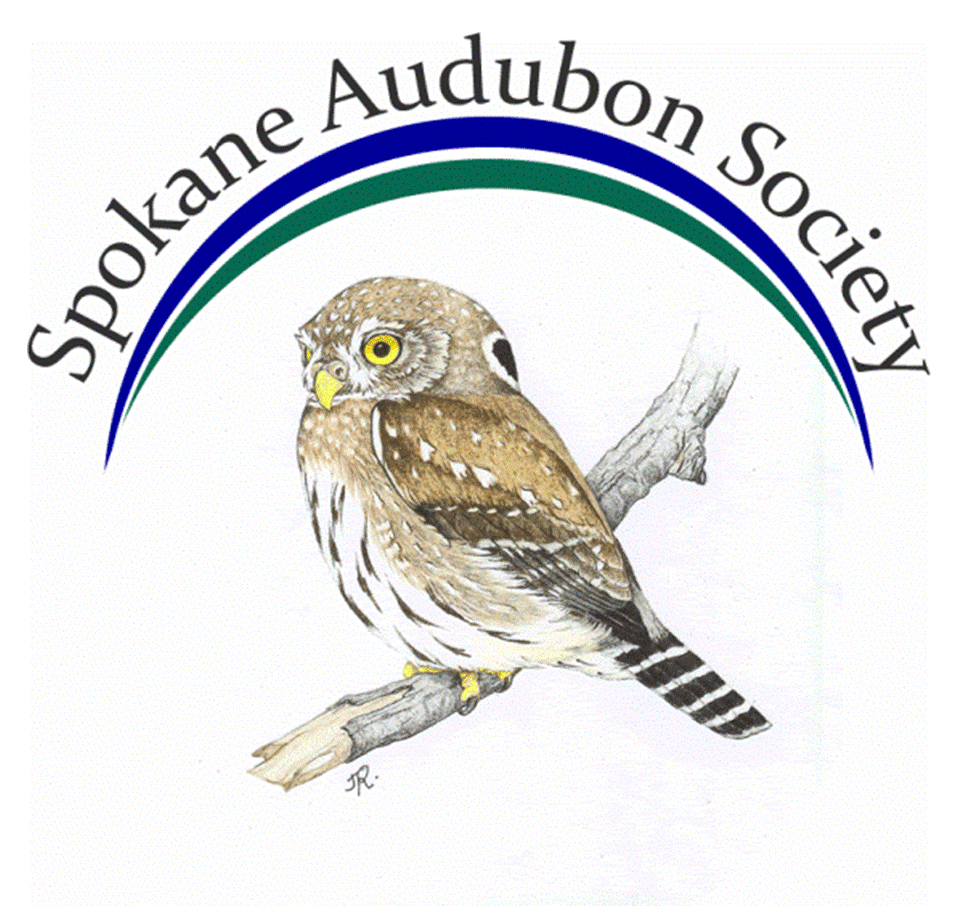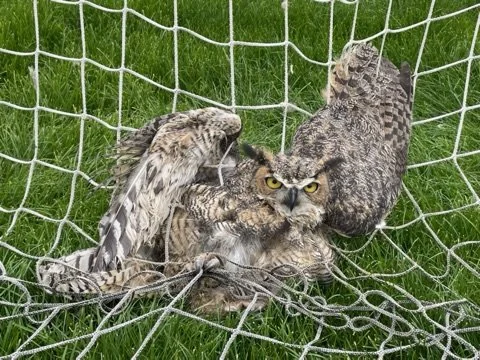The Klamath Bird Observatory near Ashland in southwest Oregon studies and conserves birds in the Pacific Northwest and throughout their migratory ranges. Elva Manquera-DeShields, who serves as the Observatory’s Science Communications, Outreach, and Conservation Partnerships Manager, will explain the science and role of birds as indicators that help inform natural resource management and nurtures an environmental ethic.
The Pygmy Owl - April 2025
Save-A-Bird team volunteers respond to requests from the public for help with injured, sick, or vulnerable birds in the Spokane County area. Mike Borysewicz will present an update on this effort, which has been underway since 2021. Mike is a team co-chair, SAS board member, and retired USDA Forest Service wildlife biologist.
The Pygmy Owl - February 2025
Removing invasive species from islands and accelerating the recovery of native plants and animals around the world is the work of the Santa Cruz, California-based non-profit Island Conservation.
Heath Packard, Chief Philanthropy Officer for Island Conservation, will present examples of this work in all corners of the world, from Lehua Island, Hawai’i to Floreana Island, Galápagos.
Projects focus on restoring islands using proven conservation methods and innovative technologies to maximize biodiversity, resilient oceans, and thriving island communities.
The Pygmy Owl - January 2025
The White-headed Woodpecker is listed in Washington as a species of concern due to its association with old-growth ponderosa pine forests. Although White-headed Woodpeckers have recently been documented inhabiting early to mid-seral managed forests, information is limited regarding their reproductive success and general ecology in these forests.
For the last 22 years, Jeff Kozma, a wildlife biologist for the Yakama Nation, has been studying the ecology of White-headed Woodpeckers in managed ponderosa pine forests along the eastern Cascades in Yakima and Kittitas Counties.
Jeff will present brief highlights from his research including nest-site characteristics, reproductive success, and nestling provisioning (i.e., who feeds the kids and what are they feeding them). He will also present a summary of findings from a long-term banding study he has been conducting since 2011, investigating adult longevity and information on juvenile dispersal from a colleague’s research.
The Pygmy Owl - November 2024
Domestic cats can make wonderful pets but also have the capacity to kill birds and other wildlife, spread infectious diseases, and cause nuisances in the community. Predation by cats is the number one cause of wild bird deaths in the country. Grant Sizemore will talk about how to manage domestic cats for everyone’s benefit - birds and other wildlife, people, and cats themselves.
The Pygmy Owl - October 2024
The Pygmy Owl - September 2024
The Pygmy Owl - February 2024
How to Manage Domestic Cats to Benefit Cats, Wildlife and People, presented by Grant Sizemore
Domestic cats (Felis catus) can make wonderful pets but also have the capacity to kill birds and other wildlife, spread infectious diseases, and cause nuisances in the community. Predation by cats is the number one cause of wild bird deaths in the country.
Grant Sizemore, Director of Invasive Species Pro- grams at American Bird Conservancy, where he runs the “Cats Indoors” campaign, will talk about how to manage domestic cats for everyone’s benefit – birds and other wildlife, people, and cats themselves.
Effective cat management is often complicated by the species’ close affiliation with people and unique legal status. Grant will focus on the conservation and public health science under- pinning the need to manage domestic cats and identify opportunities for organizations and individu- als to advance science-based solutions.
Grant has earned degrees in Zoology and Environ- mental Science from Miami University in Ohio and an M.S. in Wildlife Ecology and Conservation from the University of Florida. He has worked in wildlife con- servation policy, education, and research for over 15 years and is a Certified Wildlife Biologist. Outside of work, Grant enjoys hiking, birding, and taking care of his indoor cat.









